Potty training regression is one of the most frustrating things that dog guardians deal with. Especially when your dog is peeing on your bed, finding a quick solution is a must!
Ways to stop your dog from peeing on the bed include seeing a vet to rule out health problems, returning to potty training basics, cleaning the bed thoroughly, and keeping your dog out of the bedroom until the problem resolves.
In this article, we’ll discuss 11 ways to stop your dog from peeing on your bed so that you can get a restful sleep!
#1: Schedule a Vet Appointment
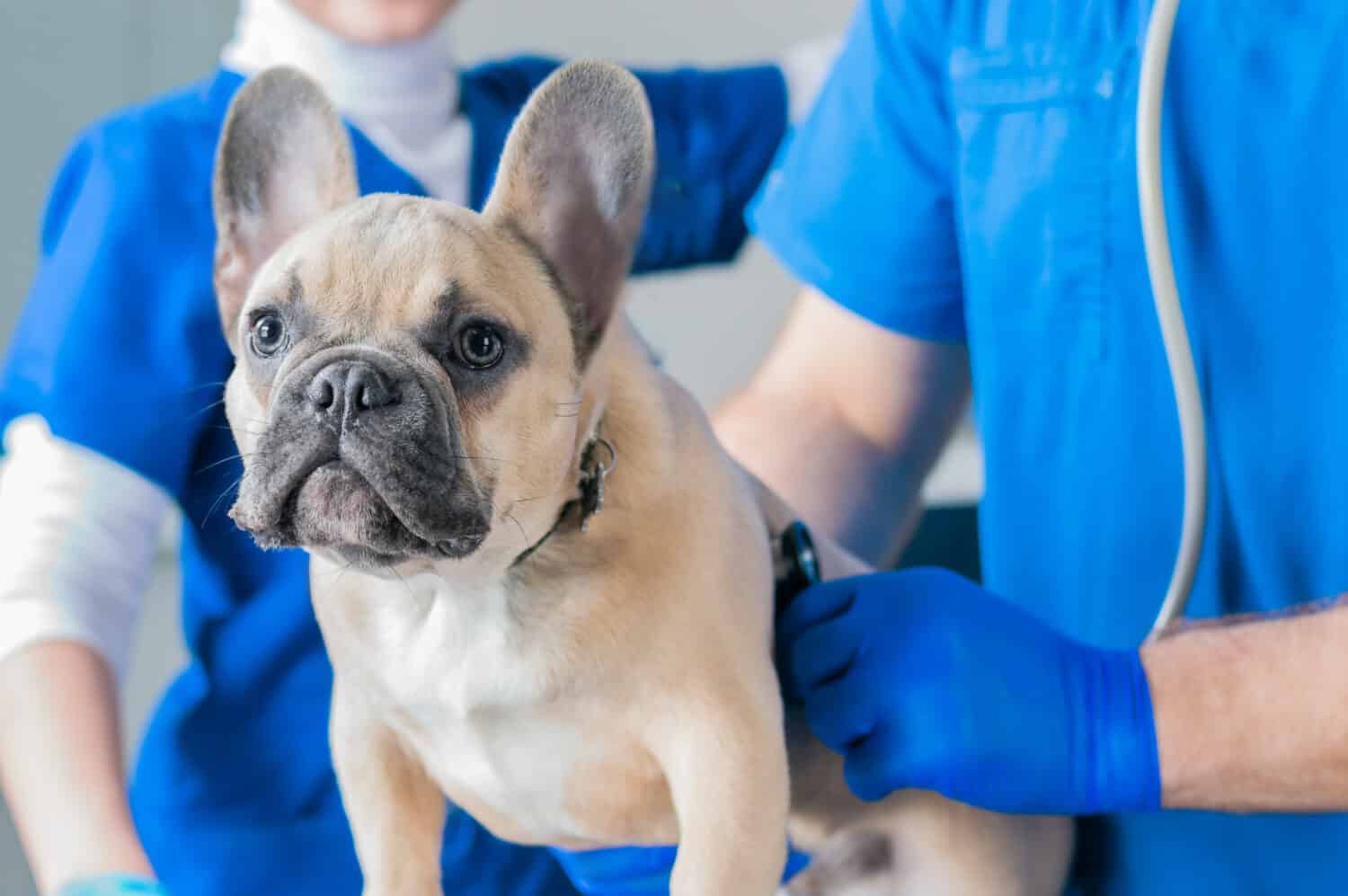
Peeing indoors is often indicative of a health problem.
©Andy Gin/Shutterstock.com
If your dog has suddenly started peeing on your bed, especially if their potty training has regressed, they need to see a vet. It’s vital to rule out illness before treating this as a training issue.
Dogs often pee on soft surfaces like beds due to pain. This could be from arthritis, a urinary tract infection, or a number of other health problems.
Mental health conditions such as dementia are another possible cause, and sometimes dogs become incontinent due to age.
#2: Spay or Neuter Your Dog
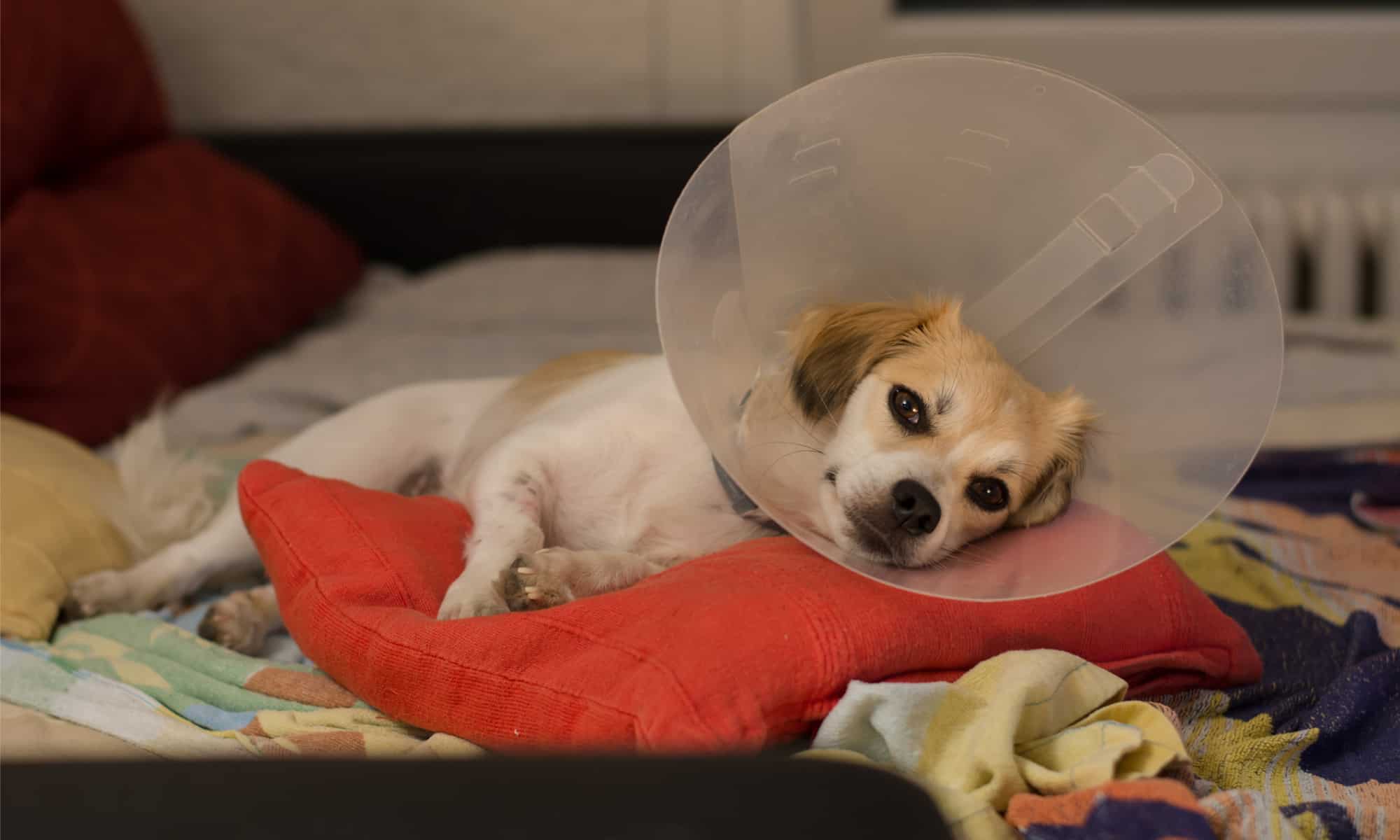
Spayed and neutered dogs are less likely to pee indoors.
©iStock.com/Daniel Besic
If your dog is intact, they’re more likely to pee indoors. This is especially true for males, but females can also use urine to mark their territories.
This isn’t an issue of dominance or your dog trying to take control of the home–it’s just a natural behavior that can make them feel more secure.
Spaying and neutering is best for dogs, and often for yourself and your community as well. Your dog is likely to live a longer and healthier life with fewer behavioral problems, and you’re guaranteed not to have any poorly-bred and unwanted puppies in your future!
#3: Bring them Outside More Often
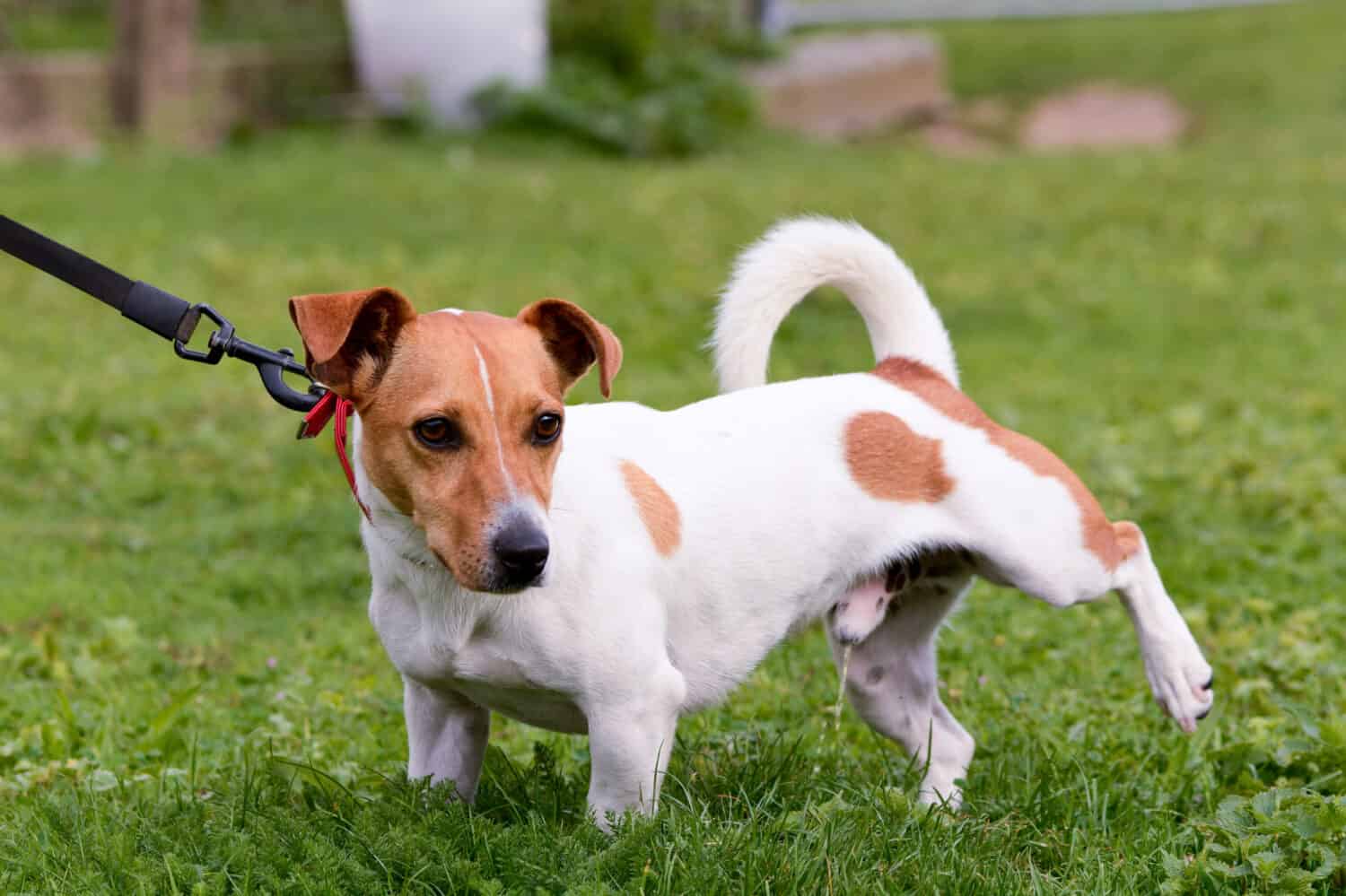
Frequent, leashed trips outside are necessary for dogs having accidents indoors.
©Martin Christopher Parker/Shutterstock.com
If your dog starts peeing indoors, you’ll need to go back to potty training basics. This means taking them out every couple of hours and after they eat, drink, or play. Bring your dog potty first thing in the morning and last thing before bed as well.
#4: Stay Outside Until they Pee
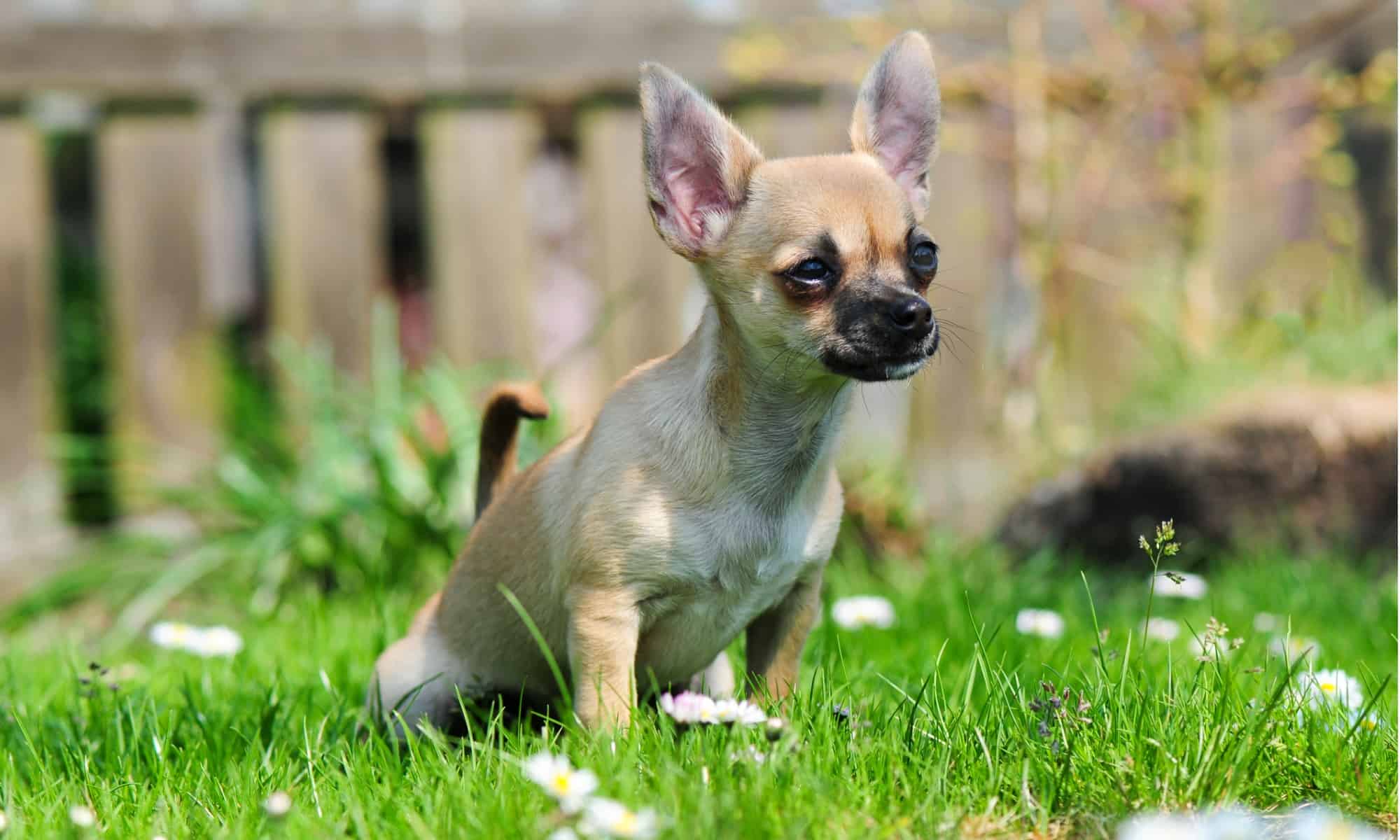
Keep your dog outside until they pee, or they’re likely to go straight back to peeing on the bed.
©iStock.com/schulzie
Some dogs will be stubborn about going outside. They might even fear peeing in front of you if you’ve punished them for peeing inside before.
Give them time and keep the experience positive, but boring–you don’t want this to be a distracting playtime, but you don’t want your dog to feel punished either.
Let your dog sniff a bit so they can find a place to go, but don’t go for a full walk, run around, or play at this time. Make those outings separate from potty time!
#5: Reward them for Peeing Outdoors
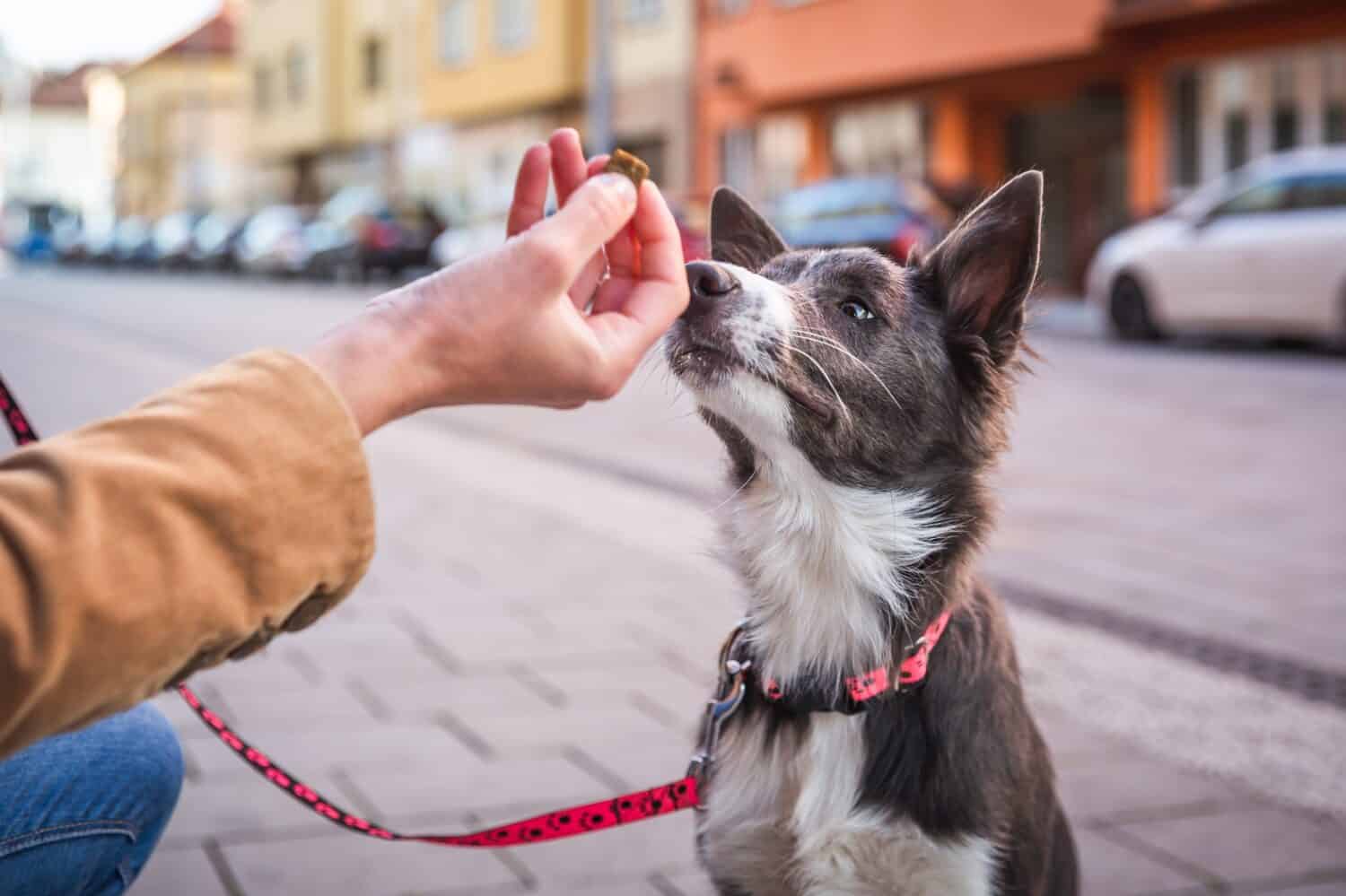
Bring high-value treats to reward your dog for peeing outdoors.
©ubaru/Shutterstock.com
If your dog pees outside, it should be a huge celebration! Shower them with praise, give them the tastiest treats, and let them know how proud you are.
You won’t have to make such a big fuss every time, but while they’re relearning, you need them motivated to do their business outdoors.
#6: Keep Your Dog Close and Supervise them Carefully
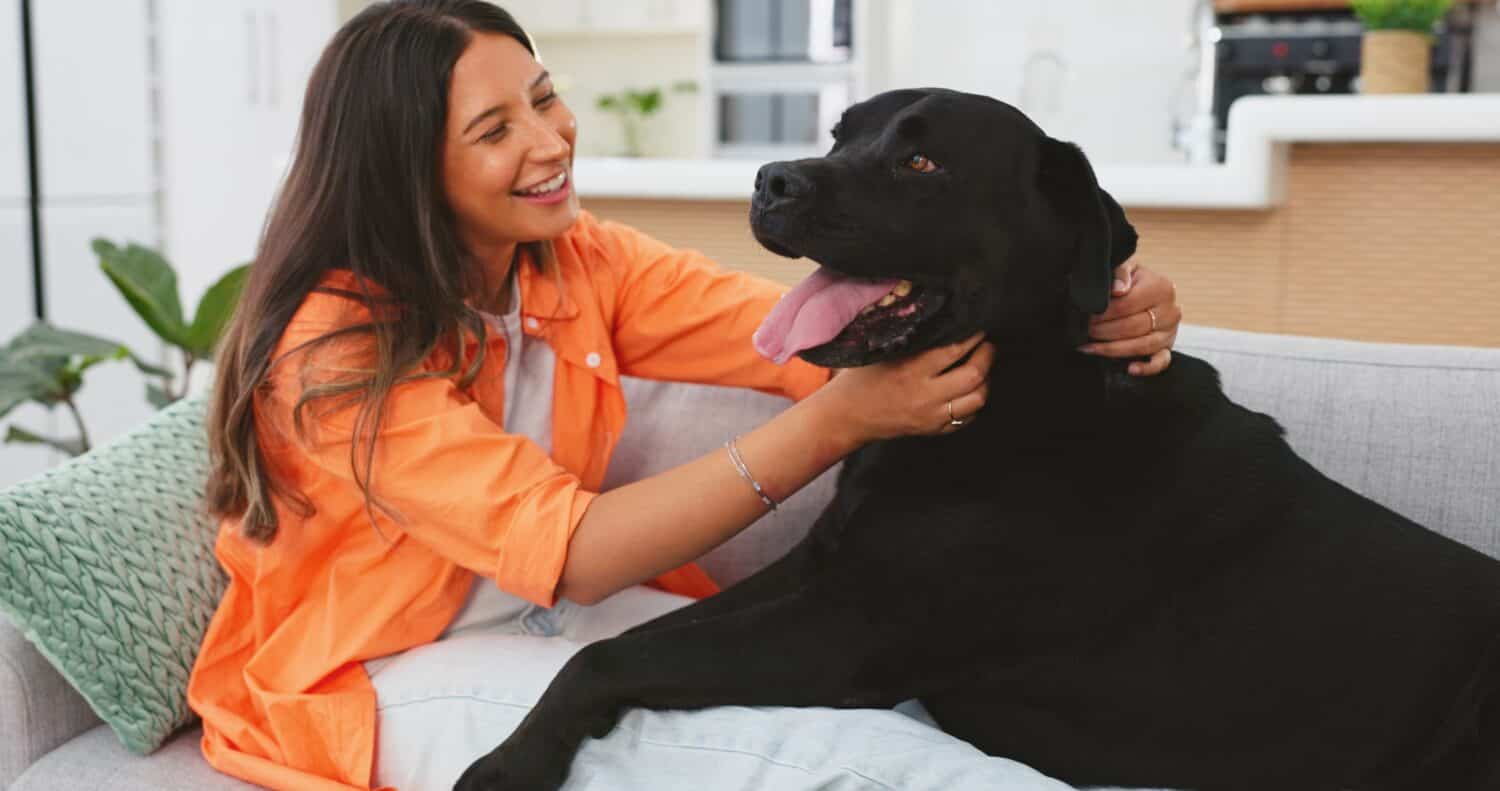
Keeping your dog close allows you to supervise them and know when they need to potty.
©PeopleImages.com - Yuri A/Shutterstock.com
Going outside many times a day often isn’t enough if your dog has decided that the bed is a potty spot. You’ll also need to supervise them closely, especially near the bed and any other indoor potty areas.
Keep your dog close to you during the day by closing the door of the room you’re in, using a leash, or putting them in an exercise pen. Don’t let them go into the bedroom on their own, as they’re likely to pee again.
If at any point your dog begins acting like they need to pee (sniffing, squatting, etc.) take them outside immediately.
#7: Avoid Punishments
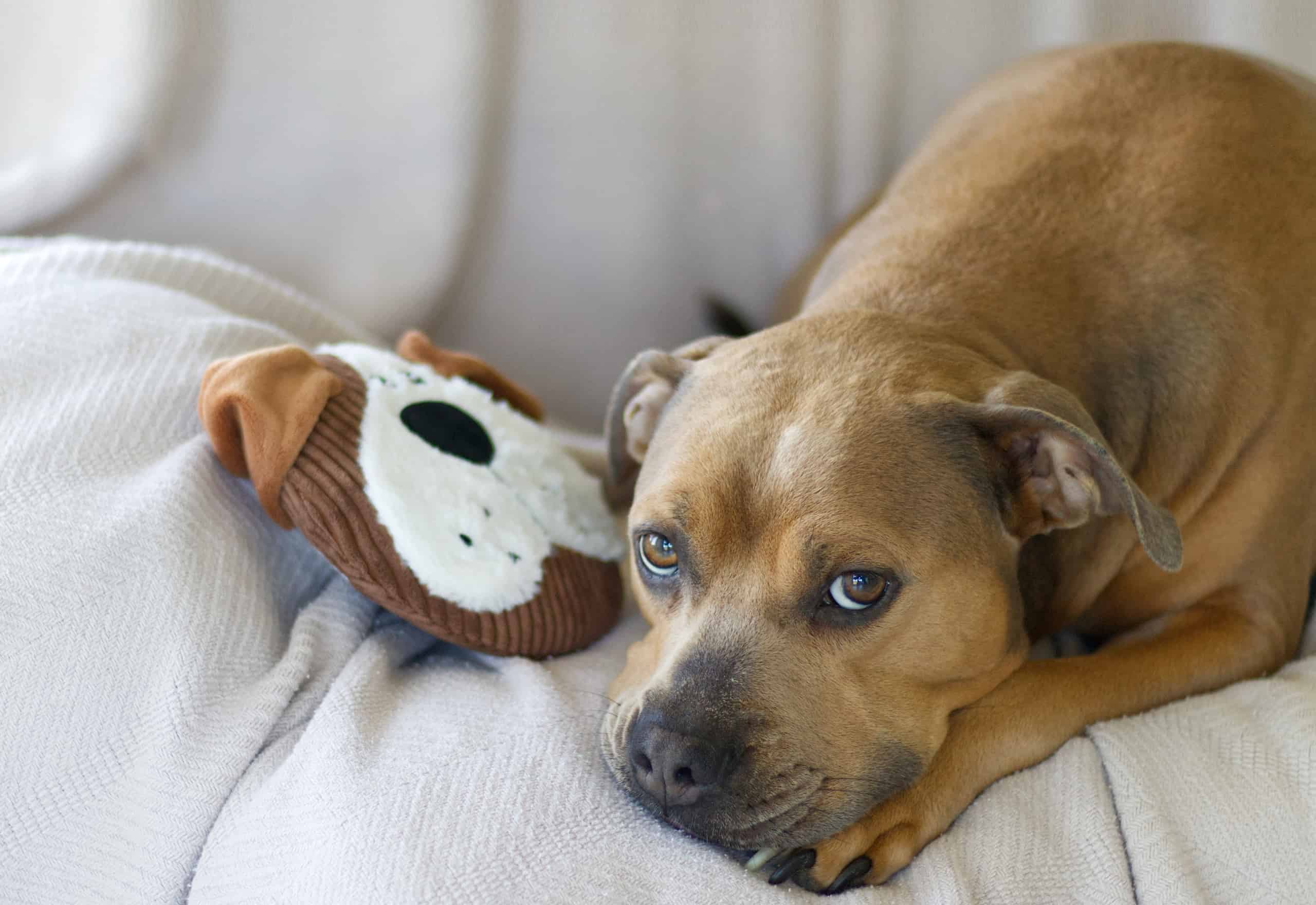
Dogs won’t understand punishments for peeing indoors and will only learn to fear you, which in turn makes potty training more difficult.
©Cheryl Ann Studio/Shutterstock.com
Never, ever punish your dog for peeing indoors. Try to avoid scolding them, no matter how frustrating it is to have to wash the sheets again. Remember that it isn’t their goal to make your life harder.
To the best of your ability, act like nothing has happened. Wash the bedding and go on as if they didn’t pee. Focus on supervision indoors, frequent potty breaks, and big rewards for peeing outside.
Punishing your dog by rubbing their nose in the mess, dragging or locking them outdoors, or hurting them in any way is counterproductive. Even if they do link the punishment to their mess (which is unlikely unless you can catch them in the act), they’ll only learn to hide from you while they pee.
This not only makes messes harder to find and clean but also makes getting your dog to go potty in front of you outside more difficult as well.
#8: Clean the Bed Thoroughly
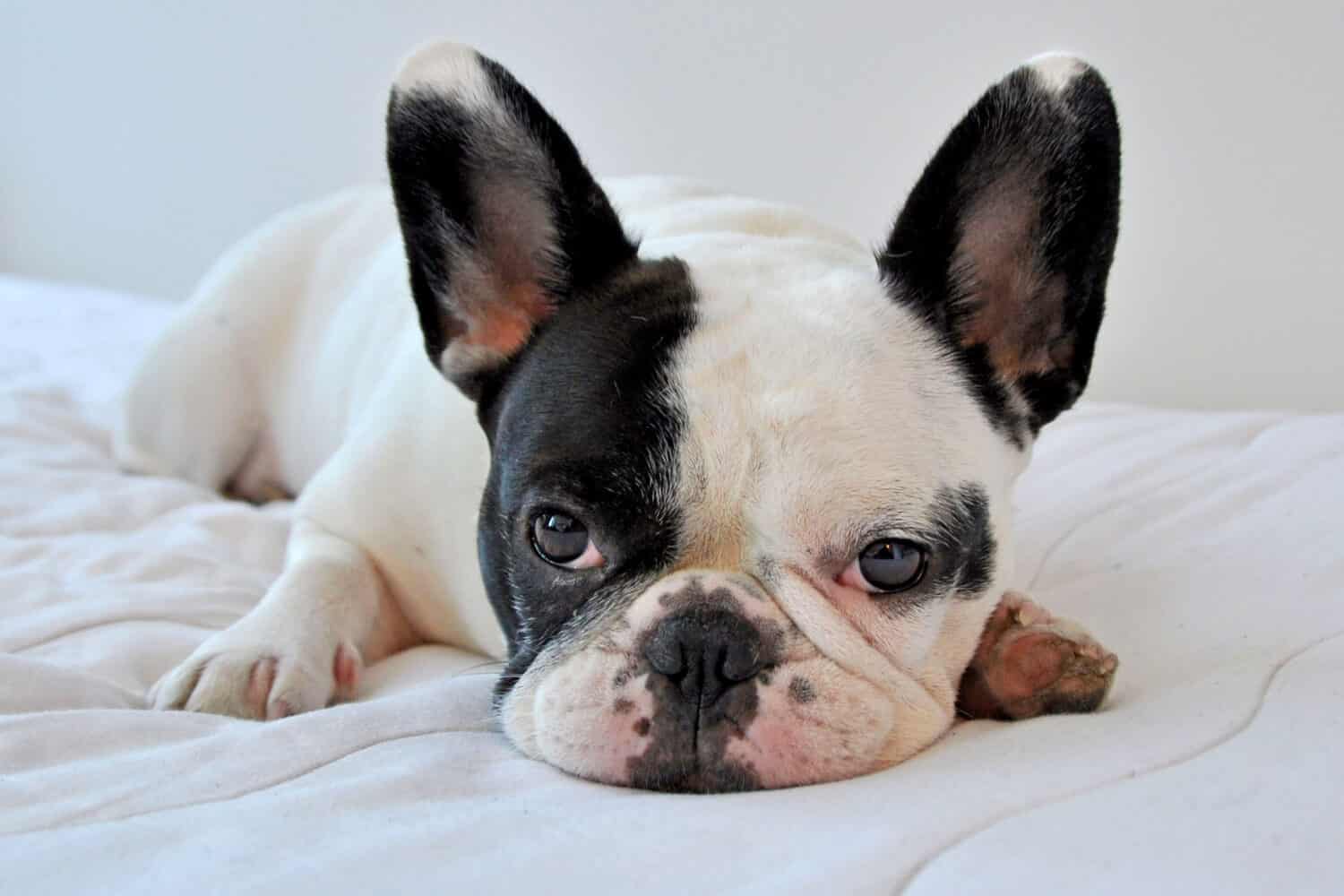
Dogs are less likely to pee on the bed again if you remove the scent of their urine completely.
©Lukas Maverick Greyson/Shutterstock.com
If your dog can still smell their urine on the bed, they’ll continue to pee there again and again. Remember that their noses are much more sensitive than ours, so you need to clean the bedding and mattress well.
White vinegar can help get odor out of bedding. You can soak the stain with vinegar for about an hour before washing the bedding, or add it directly into the washing machine as you would your laundry detergent.
For your mattress, you’ll want to dab the stain with paper towels to absorb as much liquid as possible. Then, use a pet enzyme cleaner on the stain to remove the smell and any remaining stain. Follow the instructions on your cleaner and repeat as necessary.
#9: Purchase a Waterproof Mattress Protector

While training your dog, it’s best to protect your mattress from future damage with a waterproof cover.
©evrymmnt/Shutterstock.com
While it won’t stop your dog from peeing on the bed, a mattress protector will make clean-up easier and prevent you from needing a new mattress if the peeing continues.
By making the mess easier to clean, you’ll feel less irritated by the accidents and more able to treat your dog with patience. Your mattress will also smell less, which may reduce their peeing.
#10: Close the Bedroom Door
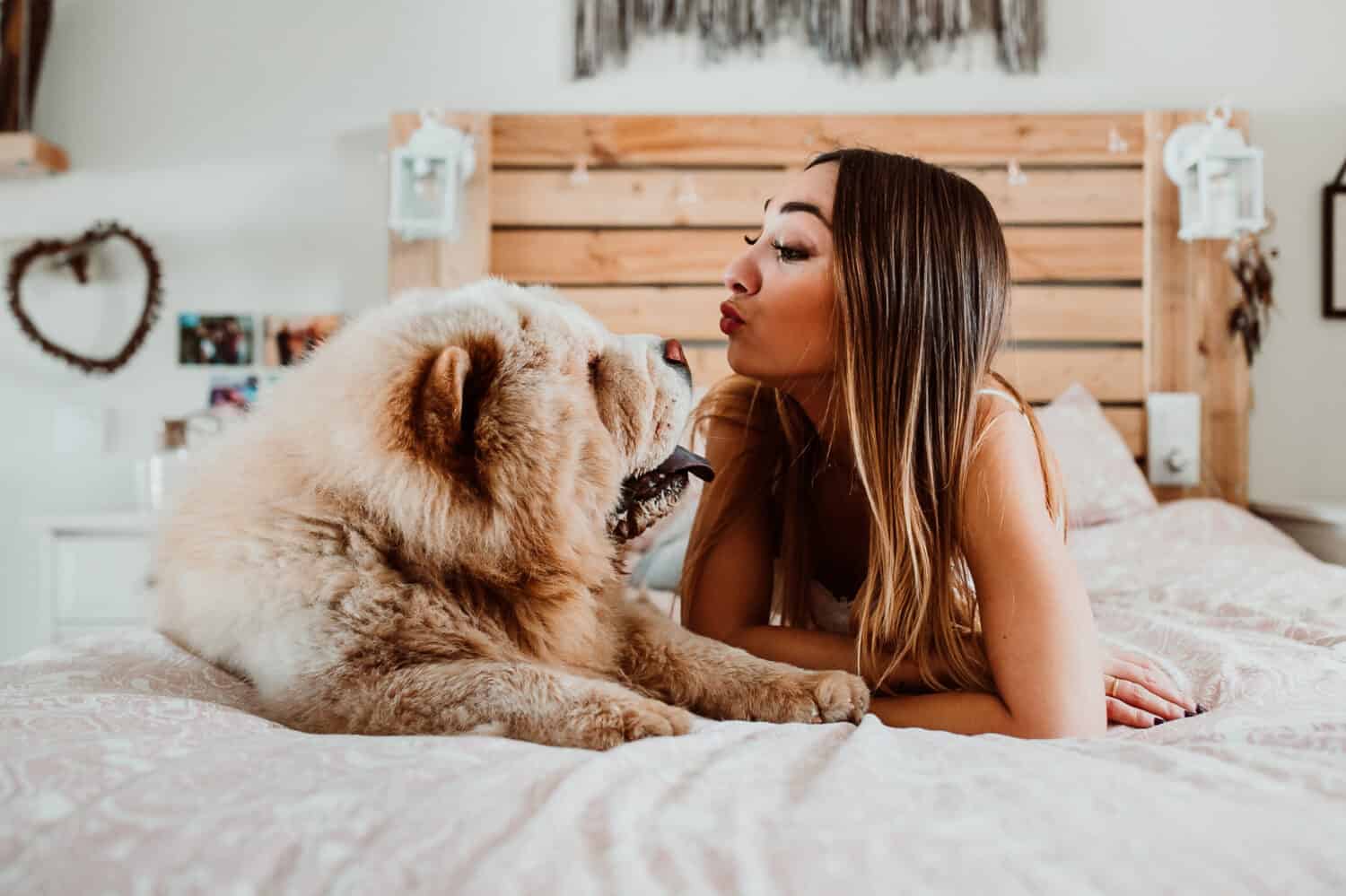
You may need to keep your dog out of the bedroom until you resolve their potty issues.
©Lucia Romero/Shutterstock.com
If all else fails, and especially if the bed is the only place your dog pees, you might need to close the bedroom door. This can be a permanent solution that’s easier than training if you’re all right with keeping them out of the bed long-term.
If not, it can also be a short-term solution to protect your mattress until you’ve cleaned well and trained your dog to potty outdoors again.
#11: Use Doggy Diapers
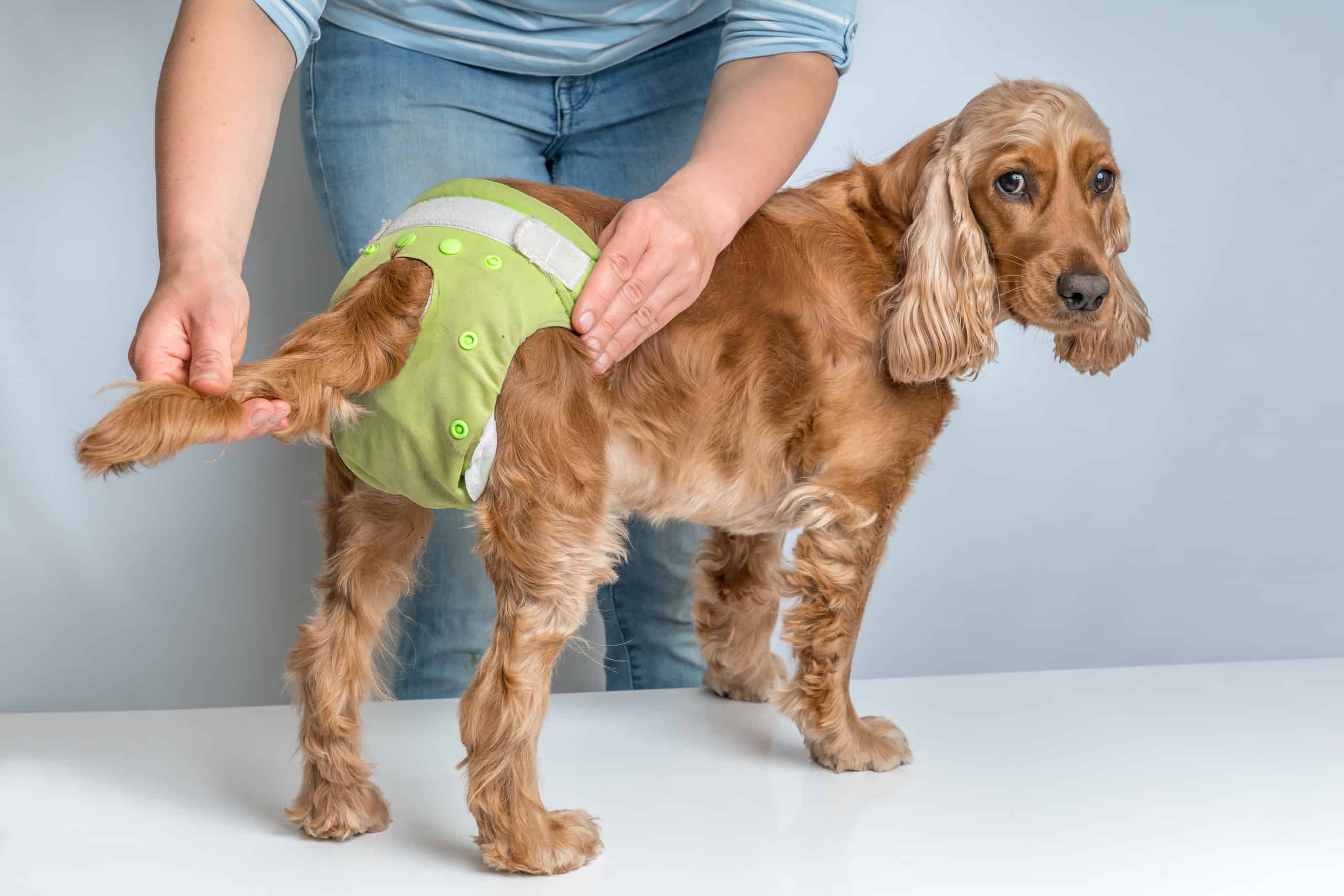
Diapers can help contain your dog’s mess.
©andriano.cz/Shutterstock.com
Lastly, belly bands and dog diapers can help dogs with incontinence. They shouldn’t be used as an alternative to potty training but can help seniors and sick dogs so that they don’t have to stay out of the bed entirely.
Keep in mind that you’ll have to change your dog’s diaper regularly. They will get urine and possibly feces on their coat, which will need to be washed each time. So, it’s not less work–it’s more a last resort for pups who need the help.
The photo featured at the top of this post is © Lucia Romero/Shutterstock.com
Ready to discover the top 10 cutest dog breeds in the entire world?
How about the fastest dogs, the largest dogs and those that are -- quite frankly -- just the kindest dogs on the planet? Each day, AZ Animals sends out lists just like this to our thousands of email subscribers. And the best part? It's FREE. Join today by entering your email below.
Thank you for reading! Have some feedback for us? Contact the AZ Animals editorial team.







